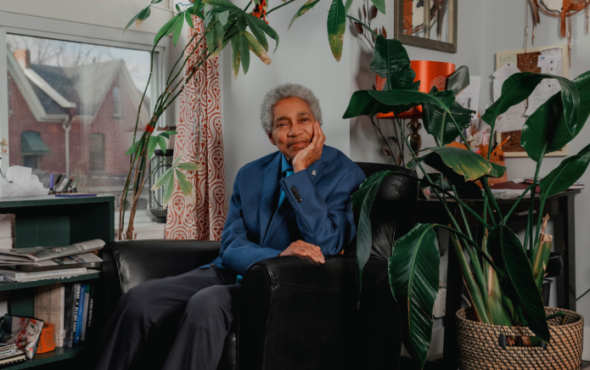
“There were other people who had been there for three years. I was wondering if I was going to be there for that long or a lesser time.” – asylum claimant quoted in a recent Human Rights Select Committee Report
The 20th of June marks World Refugee Day. In the UK, there is currently no time limit on how long people can be detained under immigration powers. To put this in context, each year, approximately 27,000 people are held across 10 detention centres in the UK. These figures include people seeking protection from persecution in other countries. The Home Office does not currently compile or provide data on the number of LGBTQ people held in detention who are seeking asylum.
The length of time people spend in immigration centres varies massively, often dependent on whether their Home Office caseworker is proactive. In the third quarter of 2018, 60 per cent of people held in detention were held for 28 days or less. However, one per cent were held for 12 months or more. Independent monitoring bodies gave examples to the Human Rights Select Committee of an individual who had been held in Harmondsworth detention centre for more than four- and- a-half years and in Yarl’s Wood detention centre for three years.
The impact on people can be catastrophic – the longer a person is held in detention the more negative the effect on their mental health. It is worth emphasising that these people are being detained purely for administrative reasons. Detention is meant to be used sparingly, as a last resort and for the shortest possible period, but the statistics show that this is not what the Home Office is doing.
These issues have come to the fore within a Parliamentary context because the Immigration and Social Security Co-ordination (EU Withdrawal) Bill, which deals with a wide range of immigration related matters, including the status of EU nationals now living in the UK, is currently at the Report stage in the House of Commons. This means that initial readings have taken place and select committees and politicians now have the opportunity to again feed into the legislative process. This is our best opportunity to have limitations placed on the powers of the Home Office to detain people, LGBTQ or otherwise.

Takver via Flikr
Being held in detention can be particularly dangerous for LGBTQ asylum claimants. In 2016 the UK Lesbian and Gay Immigration Group (UKLGIG), alongside Stonewall, released their No Safe Refuge report. Home Office guidelines have now been amended, so that trans and intersex people are recognised as being at risk of harm, but UKLGIG still receives calls for help from trans people who have been detained. No Safe Refuge gave a number of examples where LGBTQ people were harassed and bullied by detention centre staff and Home Office employees, including remarks which were sexually threatening or intrusive.
From my perspective, there were two significant inconsistencies which No Safe Refuge highlighted in relation to LGBTQ refugees and detention. Firstly, LGBTQ asylum claimants are held in confined conditions with people from the countries they have fled from. The other people often share the very homophobic, biphobic and transphobic views which the LGBTQ claimants are trying to escape. I can imagine few places less safe for an LGBTQ asylum claimant. It is completely counterintuitive to hold them in these conditions.
Secondly, whilst in detention, asylum claimants are often compiling their cases to stay in the UK. Many LGBTQ asylum claimants, fearing violence or sexual harassment, are forced back into the closet. They do not feel safe discussing their sexuality or gender identity openly in the detention centres. To go from being furtive about your sexuality in front of other detainees and detention centre staff, to then providing compelling oral testimony that you are an out and proud LGBTQ person to Home Office case workers is clearly going to be difficult.
Furthermore, whilst in detention it becomes awkward for LGBTQ people to access their personal information, making it hard to assemble additional evidence, which can range from the texts and emails of former lovers and friends to letters of reference from LGBTQ organisations, which the Home Office often expect to confirm a claimant’s sexual orientation or gender identity.
What can you do?
The bill is in the process of going through Parliament and has generated a lot of cross-party interest. This World Refugee Day, I ask you to write to your local MP, emphasising that there needs to be a 28 day time limit on detention, that no LGBTQ asylum claimant should be held in immigration detention at all and that the Home Office needs to collect data on the number of LGBTQ people they are detaining and publish this in a transparent way.
If you would like to learn more about the challenges faced by LGBTQ asylum claimants, check out the UKLGIG website.



